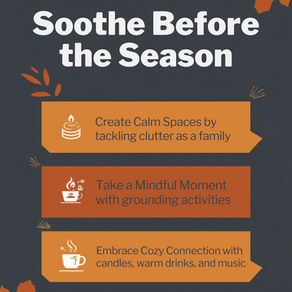- StandUP AJ

- Mar 31, 2025
- 1 min read
The Power of Purpose: Helping Teens Find Meaning and Motivation
Helping teens build resilience starts with guiding them toward a sense of purpose. When young people engage in meaningful activities—whether hobbies, career aspirations, or community service—they gain confidence, motivation, and a stronger sense of identity. Purpose serves as a natural protective factor against substance use and risky behaviors.

Why Purpose Matters
Teens with a sense of purpose:
Feel more confident and resilient
Experience lower stress and anxiety
Engage in fewer risky behaviors
Build stronger relationships
How to Help Your Teen Discover Purpose
1. Encourage Their Interests
Support their passions by enrolling them in classes, finding mentors, or simply showing enthusiasm for what excites them.
2. Promote Giving Back
Encourage volunteering or acts of service to create a sense of fulfillment and connection.
3. Support Goal Setting
Help them set and achieve personal goals to build motivation and confidence.
4. Model Purpose
Share your passions and demonstrate commitment to meaningful activities.
5. Encourage Reflection
Give them space to explore their strengths through journaling, discussions, or personality assessments.
Helping teens find purpose isn’t about pushing them—it’s about supporting their self-discovery. When they feel they have a meaningful role in the world, they make healthier choices. Let’s nurture their strengths and help them build a future filled with meaning and resilience.















